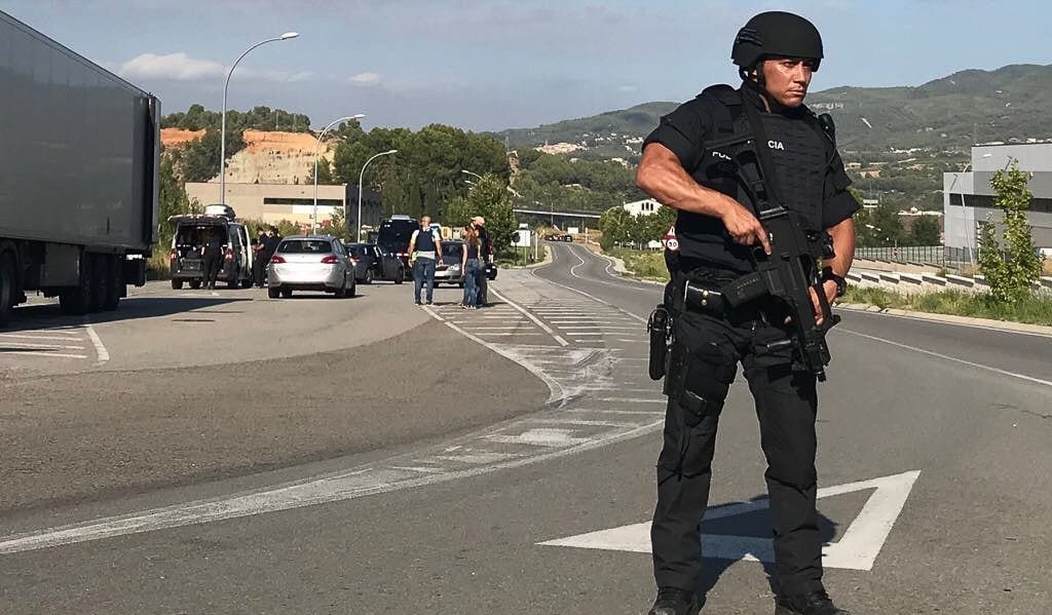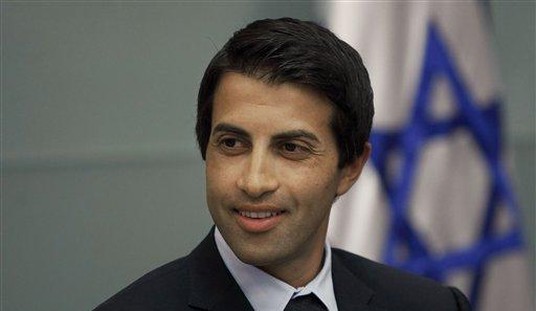Last week, there were several serious terrorist incidents in northeastern Spain. The worst occurred in Barcelona, a major tourist destination: fourteen people were killed and many more injured when a jihadist drove a van though a pedestrian area. Wild press reports quoted the city’s chief rabbi, Rabbi Me’ir Bar-Hen, as asserting:
Europe is lost! Everybody should emigrate to Israel!
At least, that’s where the drama stood for approximately one day. As it happens, the good rabbi’s comments were misquoted, or, at best, selectively quoted.
This isn’t the first time we’ve heard this level of hysterical reaction. As we reexamine the reports with more sober detachment than was possible as the suspects were being hunted down, we see that the Spanish authorities surely do have a problem on their hands. But we note as well that the targets were not Jewish institutions; so far as I’ve been able to ascertain, no Jews were among the random victims (though apparently Muslims were). There’s no reason for any uniquely Jewish angst in this matter.
Not so the attack on the Hyper Cacher grocery store in Paris. In January 2015, the offices of the (typically, very offensive) French satire magazine Charlie Hebdo were raided by jihadi terrorists, temporarily putting the magazine out of business because so many staff members had been murdered. A mere two days later, a gunman entered the kosher grocery store, taking customers and employees hostage. By the time the smoke had cleared, four of the hostages were dead and nine more were injured. The assailant was killed by French police.
The hue and cry after that one was incredible. Israeli Prime Minister Benjamin Netanyahu made an impassioned, and ill-considered, speech urging French Jews to emigrate to Israel. Since he was in France at the time, this almost caused an international incident. The panic reached a level where — as was reported in Hebrew-language Orthodox Jewish media at the time — one of the more prominent rabbis of France sent an envoy to Rabbi Aharon Leib Shteinman, the venerable 103-year-old unofficial “dean” of Israeli rashei yeshiva in Benei Beraq, to ask if this was a good idea.
As recorded in various sources, Rabbi Shteinman’s answer to the question was something like this: “What’s the rush? I haven’t heard that anyone has announced that he’s Mashiach (the Messiah).” When the envoy persisted in questioning, “But, Rabbi, they’re killing us there!” Rabbi Shteinman answered with a sigh: “They’re killing us here, too.”
A bit later, Rabbi Moshe Sternbuch, a prominent rabbinic judge in Jerusalem, pointed out the potential mass suffering which would be incurred by any attempt to absorb France’s 300,000 Jews en masse (witness the travails of the 9,000 people evacuated from Gaza in 2009). He also said that such a stampede would render their property in France valueless, as a result of which they would be largely destitute.
And so things have quieted down. Still, this leaves open the two-pronged question: why is there a Jewish diaspora, and what is an appropriate Jewish response to tragedies of the sort described above?
The answer to the first question is complex and involves certain metaphysical subtleties which are not going to be discussed adequately in an article of this length or nature; indeed, they are the subject of some of the great classics of Jewish thought (cf. e.g. Be’er haGola by the Maharal miPrag). The key concept is the subtle distinction between two Hebrew words derived from the same root, gola and galuth. Gola refers to any territory not part of the designated Holy Land, Eretz Yisrael, in which one might be resident; galuth is the very concept of exile.
The Jewish people first entered into galuth with the destruction of the first Temple and mass deportation of the population of the Kingdom of Yehuda to what was then call Bavel, and is today called Iraq. When, seventy years later, under the leadership of the Medio-Persian king Koresh (“Cyrus”) a substantial body of the Jewish people were able to re-dedicate the second Temple in a partially rebuilt Jerusalem, a Jewish presence in the Holy Land was reestablished. Indeed, in the more than two millennia since that time, there has never ceased to be a Jewish presence there — not even in the darkest days of the land’s occupation by the Crusaders.
But, though those people fortunate enough to be able to live in the territory of Eretz Yisrael are not in the gola, they, and all of the nation of Israel, are nonetheless in a state of galuth, and were so throughout the entire Second Temple period, as the Talmud makes emphatically clear. Numerous functions that would be considered “miraculous,” such as the operation of the urim vethummim, among other things, were not operable in the Second Temple period; nor did a king of the Davidic line sit upon a throne in Jerusalem. A sizable portion of the Jewish population remained resident in Bavel and, with time, elsewhere, and the land remained dominated by foreign powers: the Medio-Persian empire, the Graeco-Macedonians, and the Romans, before the Muslim onslaught.
The nation of Israel remains in exile primarily for three reasons:
1) Because we have a mission in various parts of the world which has not yet been completely fulfilled (this involves those metaphysical subtleties mentioned above);
2) Because the conditions which were the proximate cause of our dispersal throughout the Roman Empire, described in the Talmud, have not yet been fully resolved; the resolution will be marked by establishment of the third and final Temple, as described by the Prophet Ezekiel;
3) As an interim safety mechanism, such that, if some disaster befalls a Jewish community somewhere (e.g., the Crusaders occupying the Holy Land; the expulsions of the Jewish populations of England, Spain, and Portugal; the Thirty Years’ War; and the 20th Century Holocaust, to name a few) it doesn’t befall all Jews in the world. There are always survivors and there is always somewhere else to go.
That established, other than prudence, what is an appropriate Jewish response when disaster strikes?
The second paragraph of the universal Jewish declaration of faith, known as the Shema, provides a clue. Whereas the entire first paragraph, drawn from Deuteronomy VI, 4-10, is couched entirely in the second person singular and deals exclusively with the duties of each individual, without mention of reward or punishment, that isn’t true of the second paragraph. There, we’re told explicitly that if we study the commandments of the Torah diligently and execute them faithfully, the rains will fall on time, the grass will grow, there will be bumper crops and peace; and if not, then the opposite things will happen.
Why the contrast?
Because our relationship, our contract with the Holy One, Blessed is He, is on at least two levels, an individual one and a collective one. On the individual level, each of us has duties to perform for which, we are assured, a reward is piled up in the hereafter and also punishment for their neglect. But we are not allowed to see either looming ahead, for if every meritorious act were accompanied by jewels falling at one’s feet, and every transgression was followed by a strangling sensation, one would have to be a pretty sick puppy, a real masochist, either to neglect their performance and deliberately violate them. So one could not be said to have genuine free will.
As an individual, I can always know exactly where I stand with G-d, if I want to know; I can perform the exercise called a cheshbon hanefesh, an accounting of the soul and, so long as I am brutally honest with myself, I can know which areas are all right and which ones need work.
On the other hand, on the communal level (as the Rambam writes eloquently in Hilchoth Ta’anith), when disaster strikes a community, the rabbinical leadership of the community has a responsibility to probe what is going on with a view to determining what caused these external factors to manifest themselves — and to take appropriate action. In this case, the disaster is a jihad attack damaging Spain’s tourism industry. This, presumably, is precisely what Rabbi Bar Hen is now trying to do.
As the article from the Jerusalem Post quoted above makes clear, he emphasizes both prudence — Spanish Jews should also own property elsewhere, particularly in Israel, to go to should it be necessary — but also the permanent things: the expanding Jewish school system and local yeshiva.
In this sense, the events in the world around us are a continuous wake-up call to us all. Having just completed another Tish’a be’Av anniversary to emphasize to us our sense of loss and exile over the absence of the Temple, we now are afforded in the month of Elul a season of great closeness to Ha-Shem, a time especially suited to conduct the individual and collective cheshbon hanefesh, and to bring about our final redemption.









Join the conversation as a VIP Member